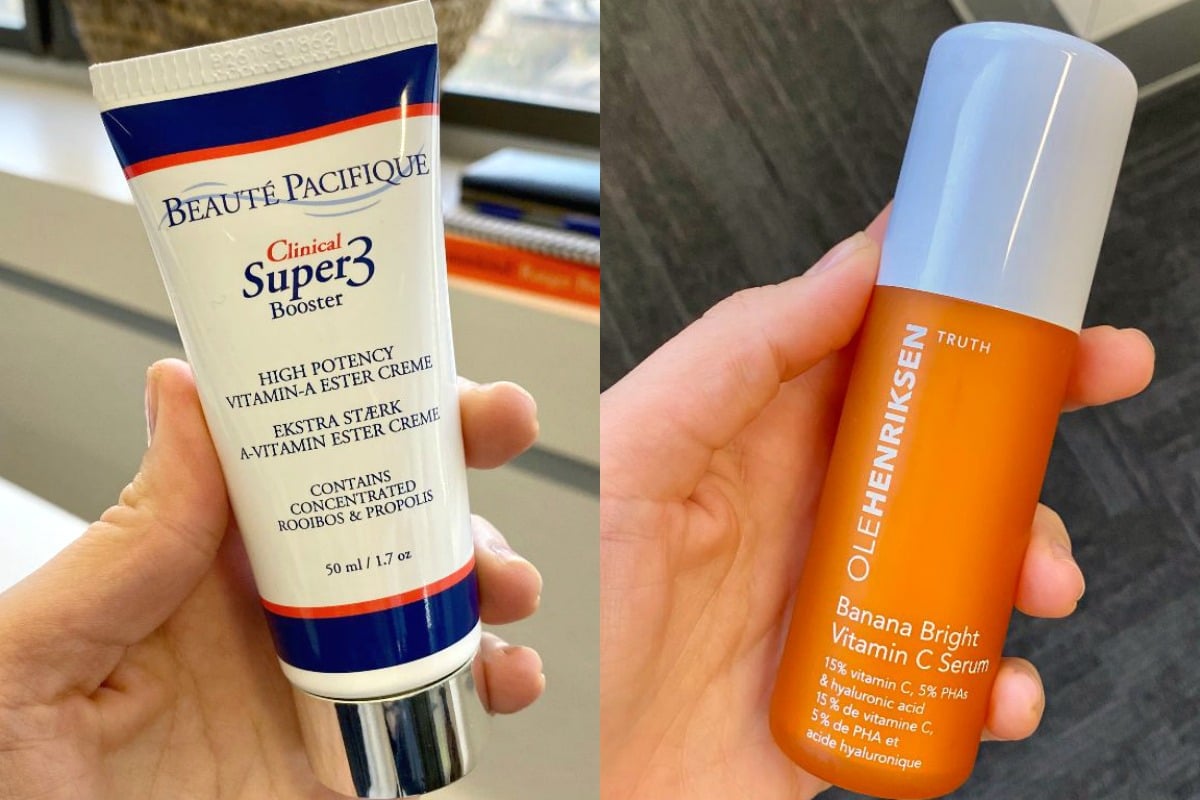
The beauty industry loves to use the alphabet when naming products and ingredients. BB creams, CC creams, AHAs and BHAs, SLS and DHA... I could go on.
Side note... here are seven ways to improve your skin while sleeping. Post continues below.
You’ve probably heard of Vitamin A and Vitamin C, too, and may know that they’re both somehow good in our line of defence around pigmentation. But do you know what they actually do, how they are different and which one is right for your skin?
No? Don’t stress, I’m going to tell you. (Well, with the help of chatting to an actual qualified skin expert.) Read on...
Is Vitamin A or Vitamin C better for dealing with pigmentation?
"That is a tough question to ask a dermatologist as I love both these topical active ingredients. They have unique beneficial properties but work well synergistically," Melbourne based dermatologist Dr Shyamalar Gunatheesan said.
So we can use both in the same routine? Yay! Well then how are they different?
"Topical Vitamin C is a hydrophilic molecule whilst topical Vitamin A, or retinoids, are lipophilic. This difference will dictate how these actives are delivered into the skin in a stable, efficacious manner," Dr Gunatheesan said.
Pardon?
"Vitamin C protects against photodamage, controls melanogenesis and stimulates collagen and elastin production. Vitamin A also stimulates the formation of collagen, refines skin texture and optimises cell turnover or regeneration."
_1595920339204.jpg?width=656)
_1595920371838.jpg?width=656)